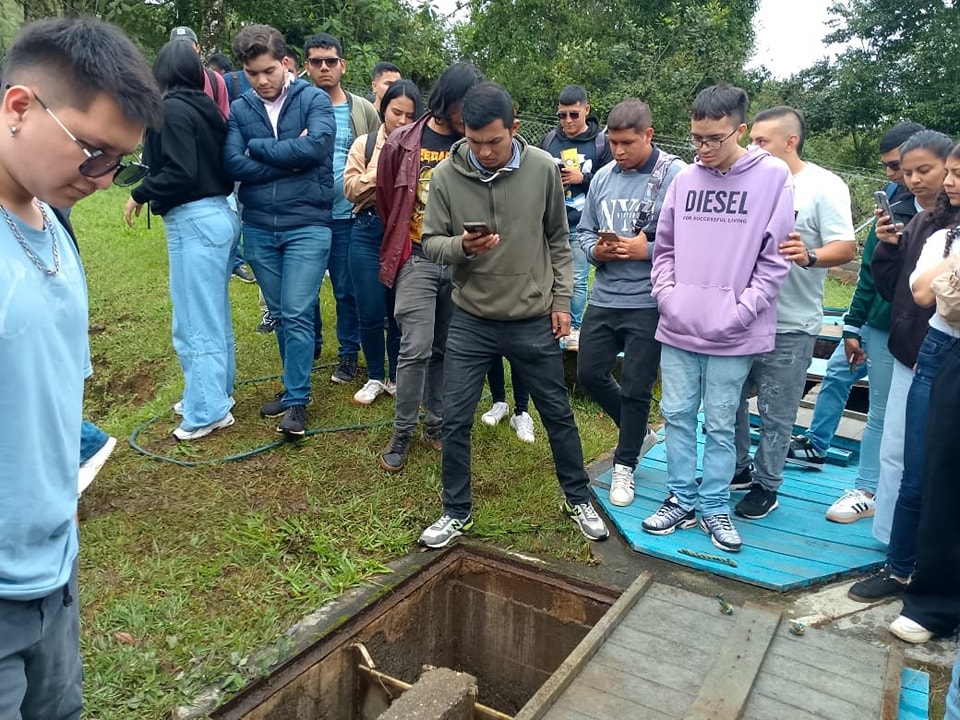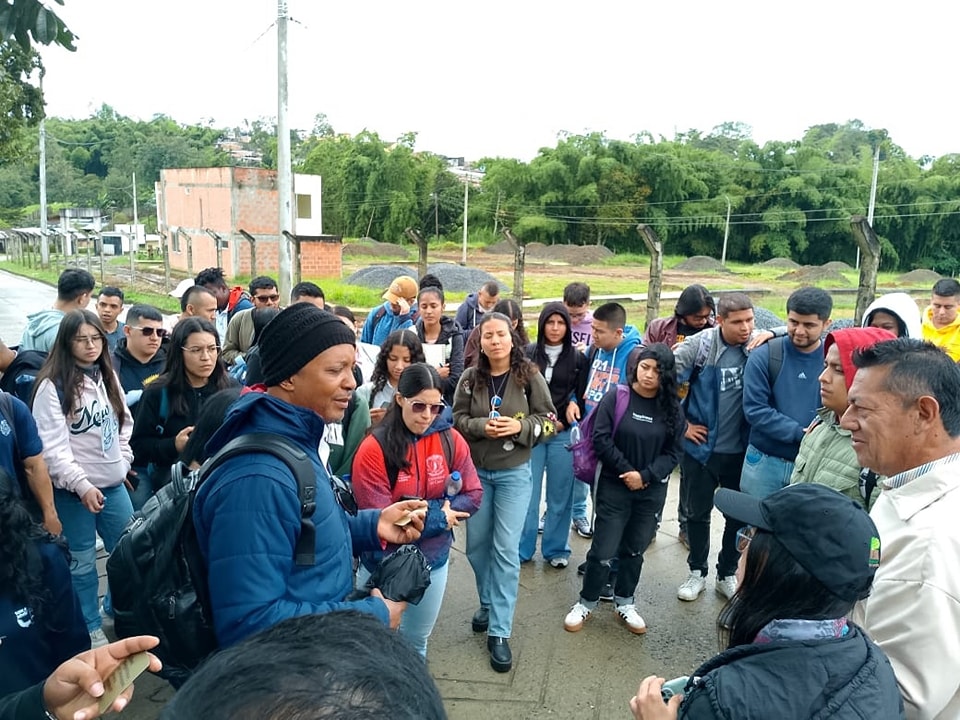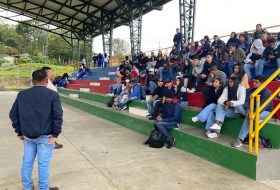News
From Theory to Practice! How Integral Training Processes Are Being Shaped for Future Economists and Environmental Engineers at Unicauca
Led by Professor Raúl Cortés, students from the Economics and Environmental Engineering programs at the University of Cauca implemented two pedagogical models in the municipality of Cajibío, Cauca, aiming to apply their academic learning and contribute to community development.
One of the University of Cauca’s ongoing priorities has been to bring the theory learned in classrooms into the daily practices of the students’ home departments. Professor Raúl Hernando Cortés Landázuri, who teaches in both the Economics and Environmental Engineering programs, has always kept this in mind.
Since 2004, he has been implementing two pedagogical models titled Classroom Research and Collaborative Learning. These models aim to engage students from both programs in communication and interaction with communities, allowing them to understand community perspectives and perceptions regarding development issues. Additionally, they promote collaboration among students, encouraging conversation, knowledge sharing, and the development of research projects that contribute to the communities involved, while also offering students the opportunity to participate in national and international events.

Provided photo
Thus, in March 2025, Professor Cortés, accompanied by 27 seventh-semester Environmental Engineering students and 35 tenth-semester Economics students, visited the municipal center of Cajibío and the village of El Cairo. There, they received information from officials of the Secretariat of Agriculture and Environment about ongoing activities and projects impacting the municipality's development and sustainability. Afterwards, they conducted surveys on residents' perceptions regarding local issues and interviewed social leaders to gather their perspectives as representatives of civil society.
The results of this experience have been so positive that Professor Cortés and his students are planning two additional visits. One will be to the Smurfit Kappa plant in Yumbo, Valle del Cauca, to learn about the wood transformation process originating from Cajibío. The second visit will return to the municipality to observe the reforestation process of the company's managed forests and to conduct surveys aimed at assessing the cohesion of social organizations regarding territorial defense and the execution of collaborative activities—essential projects for achieving sustainability in the region.

Provided photo
“The importance of carrying out these activities through these pedagogical models lies in the fact that students, as future professionals, are attuning themselves to the actors, the context, the landscape, and the socioeconomic and ecological problems affecting the department of Cauca. This way, once they graduate, they will be able to contribute through their professional practice to achieving a higher level of development in these municipalities,” emphasized Professor Raúl.
Initiatives like this are always a source of great joy and pride for our university and its commitment to regional thinking, as they clearly demonstrate our faculty’s educational vocation, their willingness to establish dialogues between academia and the community, and their interest in building sustainable progress for the regions. We look forward to sharing more updates soon about these actions that undoubtedly strengthen our presence in the territory.
Written by: Center for Communications Management


